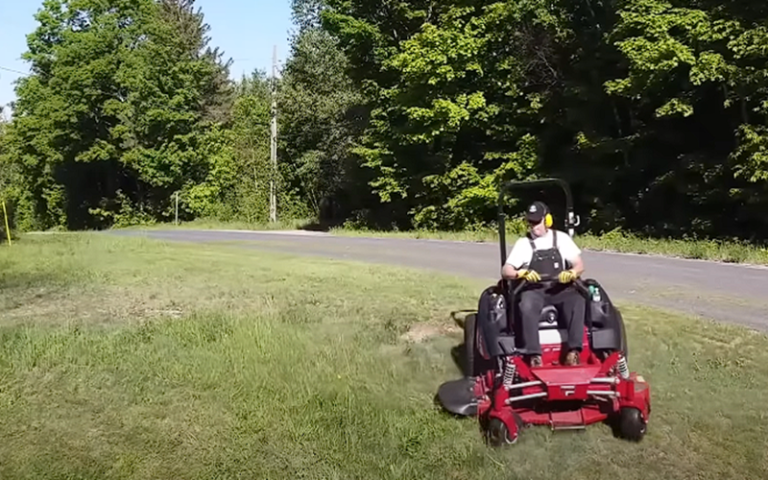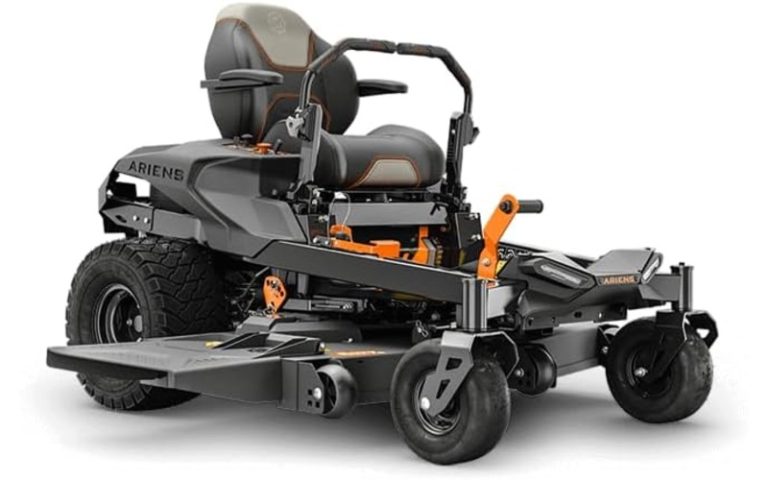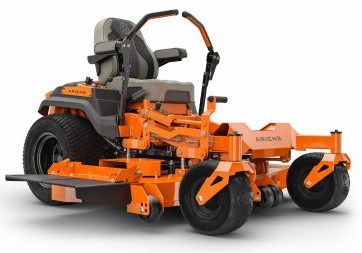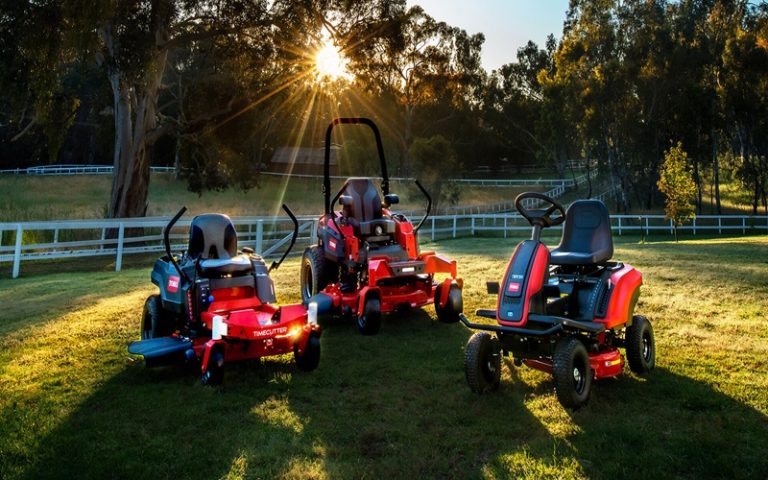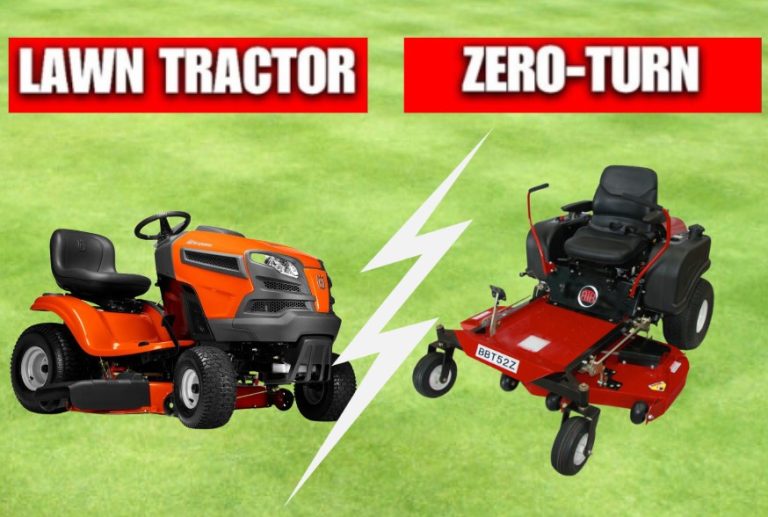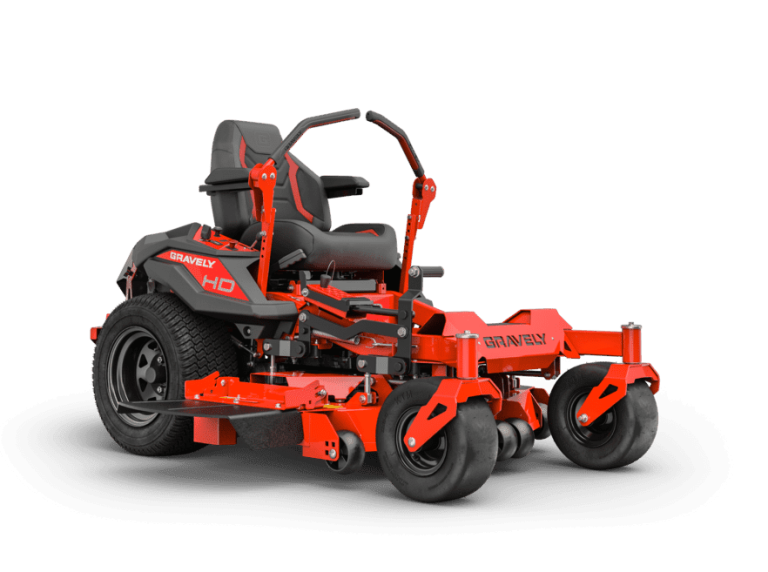Zero Turn or Riding Mower: What To Know Before You Buy
When it comes to maintaining your lawn, choosing the right mower can make all the difference in both the quality of your cut and the efficiency of your work. Two popular options that homeowners often consider are zero-turn mowers and riding mowers. Both have their advantages, but understanding the differences between them can help you make an informed decision that best suits your needs. In this article, we’ll explore the key features, benefits, and drawbacks of zero-turn and riding mowers to help you determine which is the better choice for your lawn care routine.
What is a Zero Turn Mower?

A zero-turn mower is a type of riding lawn mower that is known for its exceptional maneuverability and speed. Unlike traditional riding mowers, zero-turn mowers are designed with a specialized steering system that allows them to turn 360 degrees on the spot, effectively eliminating the need for three-point turns. This feature makes zero-turn mowers ideal for lawns with complex landscapes, tight corners, and numerous obstacles.
1. Key Features of Zero Turn Mowers:
- Zero-Turn Radius: The hallmark of a zero-turn mower is its zero-turn radius, which means the mower can pivot around its axis without leaving any uncut patches.
- Dual Lever Steering: Instead of a traditional steering wheel, zero-turn mowers use two levers for steering. These levers control the speed and direction of each wheel independently, allowing for precise control.
- Speed and Efficiency: Zero-turn mowers are generally faster than riding mowers, allowing you to cover more ground in less time.
- Comfort and Control: Many zero-turn mowers come equipped with high-back seats, ergonomic controls, and suspension systems to enhance comfort during prolonged use.
2. Benefits of Zero Turn Mowers:
- Enhanced Maneuverability: The ability to turn on a dime makes zero-turn mowers perfect for navigating around garden beds, trees, and other obstacles.
- Faster Cutting: The speed and efficiency of zero-turn mowers allow you to complete lawn care tasks more quickly, which can be especially beneficial for larger properties.
- Cleaner Cuts: Zero-turn mowers provide a cleaner and more precise cut, reducing the need for additional touch-ups.
3. Drawbacks of Zero Turn Mowers:
- Learning Curve: The unique steering mechanism of zero-turn mowers can take some time to get used to, especially for new users.
- Price: Zero-turn mowers are typically more expensive than riding mowers, which might be a consideration if you’re on a budget.
- Limited Traction: Zero-turn mowers may struggle on steep or uneven terrain due to their design, making them less suitable for hilly properties.
What is a Riding Mower?

Riding mowers, also known as lawn tractors, are a more traditional type of lawn mower that has been a staple for homeowners for decades. They feature a front-mounted engine and a steering wheel for navigation, and they come in various sizes and configurations to suit different lawn care needs.
1. Key Features of Riding Mowers:
- Steering Wheel Control: Riding mowers use a steering wheel for directional control, which can be more intuitive for users who are accustomed to driving cars.
- Wide Decks: Many riding mowers come with wide-cutting decks, which can cover more ground in a single pass.
- Variety of Attachments: Riding mowers can often be equipped with various attachments, such as snow plows, baggers, and sprayers, to increase their versatility.
- Engine Size: Riding mowers typically come with larger engines compared to zero-turn mowers, which can be advantageous for handling tougher terrain.
2. Benefits of Riding Mowers:
- Ease of Use: The steering wheel control is familiar and can be easier for new users to handle compared to the lever-based steering of zero-turn mowers.
- Versatility: Riding mowers often come with a range of attachments and accessories, making them useful for various tasks beyond just mowing.
- Stability: Riding mowers generally offer better stability on uneven or hilly terrain due to their design and larger wheels.
3. Drawbacks of Riding Mowers:
- Turning Radius: Riding mowers have a larger turning radius, which means you may need to make multiple passes to navigate around obstacles.
- Speed: They are usually slower than zero-turn mowers, which can result in longer mowing times for larger lawns.
- Less Precision: The cutting precision of riding mowers may not match that of zero-turn mowers, potentially requiring additional cleanup work.
Which Mower is Right for You?

Choosing between a zero-turn mower and a riding mower depends largely on your specific needs and preferences. Here are some factors to consider:
- Lawn Size and Complexity: If you have a large, open lawn with few obstacles, a riding mower might be a good choice due to its stability and ease of use. However, if your lawn has numerous tight corners and landscaping features, a zero-turn mower’s maneuverability could be more beneficial.
- Budget: Zero-turn mowers are generally more expensive than riding mowers. If budget is a concern, a riding mower might be a more economical option.
- Terrain: For flat or mildly uneven terrain, a zero-turn mower can offer efficient and precise mowing. If you have steep or rugged terrain, a riding mower might provide better traction and stability.
- Additional Uses: If you need a mower that can handle more than just grass cutting—such as hauling, snow removal, or leaf collection—a riding mower with various attachments may be the better choice.
- Comfort and Ease of Use: If you prioritize comfort and ease of use, consider the learning curve associated with zero-turn mowers and the intuitive steering of riding mowers. Your personal preference and comfort with the mower’s controls will play a significant role in your satisfaction.
Conclusion
Both zero-turn mowers and riding mowers have their unique advantages and limitations. By evaluating your lawn care needs, budget, and personal preferences, you can choose the mower that best fits your requirements. Whether you opt for the speed and agility of a zero-turn mower or the traditional stability and versatility of a riding mower, investing in the right equipment will make your lawn maintenance tasks more efficient and enjoyable.
If you need further assistance in choosing the perfect mower for your lawn, consulting with a local dealer or lawn care professional can provide additional insights tailored to your specific situation.

Michael Anderson is a lawn care professional with many years of experience in the industry. His journey began in his family’s landscaping business, where he developed a passion for gardening and outdoor maintenance. Michael specializes in helping homeowners tackle challenging terrain, focusing on the best equipment and techniques for effective lawn care.
In 2024, he founded bestzeroturnmowerforhills.com to share his knowledge and help others find the ideal zero turn mower for hilly landscapes. His commitment to providing unbiased reviews and practical advice has made him a trusted resource for gardening enthusiasts.
